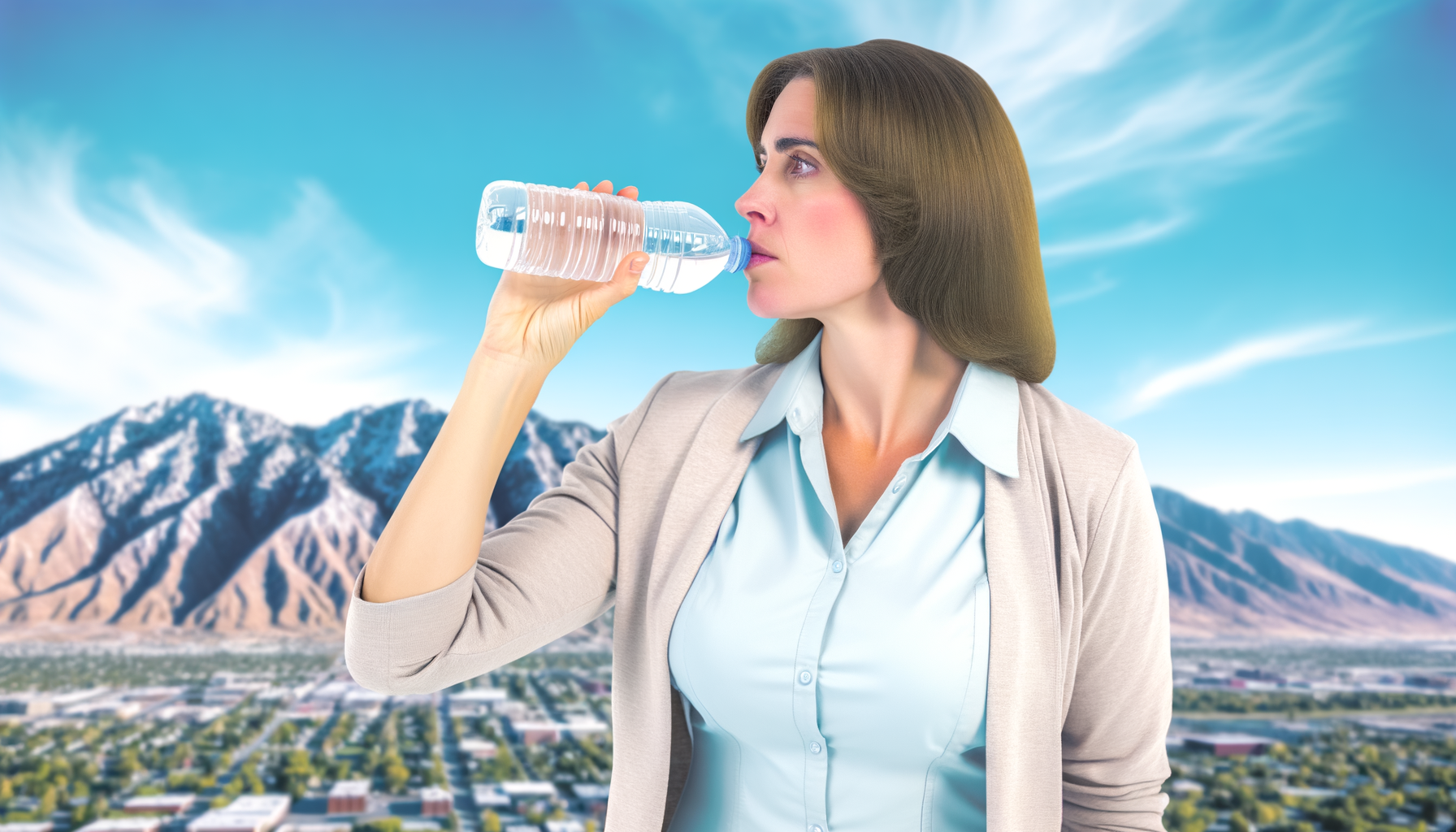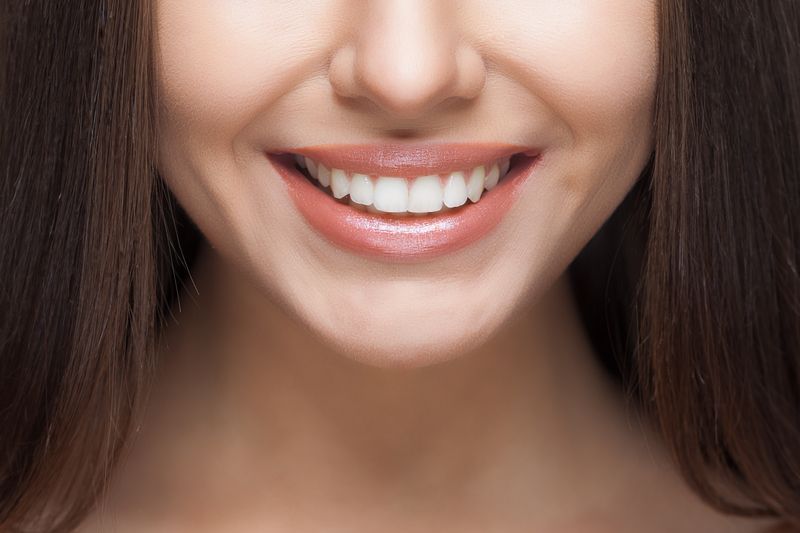Water Works: The Power of Hydration for Oral Health

Drinking enough water is essential for maintaining a healthy body, but its benefits extend beyond just quenching your thirst. It's also a vital tool in keeping your teeth and gums in good shape. Proper hydration aids in washing away food particles and bacteria, reducing the risk of cavities and gum disease.
The Relationship between Hydration and Oral Health
Oral health is a vital aspect of overall wellness, yet many fail to recognize that something as simple as drinking water can greatly benefit dental hygiene. For those living in the high altitudes of Salt Lake City, staying hydrated is not just a matter of quenching thirst, but an essential habit for health—namely, oral health.
Combatting Dry Mouth and Its Risks
In the dry climate of Utah's elevated terrains, residents may often find themselves battling the discomfort of dry mouth, a condition medically known as xerostomia. This ailment is more than a mere annoyance; it can compromise the health of one's mouth. Without adequate saliva flow, the risk of gum disease and tooth decay escalates. Saliva stands as the first line of defense against harmful bacteria and food remnants, so its decrease can make one's mouth a welcoming haven for dental woes.
Water as a Bacterial Cleanser
Imagine a natural cleanser that not only hydrates but also aids in maintaining oral cleanliness. Water, the most accessible and healthy beverage, fulfills this role brilliantly. By simply sipping water throughout the day, one facilitates the removal of food particles and bacteria that could otherwise stick around, potentially leading to cavities and infections. Supporting saliva production is crucial since a well-hydrated mouth is less likely to succumb to bacteria-induced tooth decay.
Maintaining Optimal pH Balance
Our mouths desire balance, particularly regarding pH levels. Enamel, the protective layer on our teeth, can erode in acidic environments. Here's where water's role is pivotal. Regular water consumption helps to neutralize the mouth's pH, thereby protecting the enamel from the onslaught of acidity that certain foods and drinks can cause. Indeed, water intake is an easy, effective, and natural method to preserve the strength and integrity of teeth.
Practical Hydration Tips for Salt Lake City Residents
Adapting to the unique demands of Salt Lake City's elevated landscape means prioritizing hydration for optimal health, including oral health. Whether you are walking the streets of downtown or enjoying the surrounding natural beauty, keeping a water bottle at hand can make a significant difference in maintaining a hydrated smile.
Incorporating More Water into Your Routine
To ensure oral health is protected from the inside out, implementing practical hydration practices into daily life is key. Aiming for the recommended water intake is the first step. As a baseline, health authorities suggest that men should consume around 3.7 liters (125 ounces) and women about 2.7 liters (91 ounces) of water from all beverages and foods each day. With the low humidity and high altitudes specific to Salt Lake City, residents may need to adjust these guidelines slightly to account for increased water loss through respiration and perspiration.
Hydration Habits for High-Elevation Living
Living above sea level presents unique challenges for hydration, as the body works harder to obtain oxygen, often leading to a quicker loss of bodily fluids. Salt Lake City dwellers should consider not only meeting but exceeding typical water intake recommendations, especially during physical activity or when enjoying outdoor recreational activities that this region is famous for. Incorporating hydrating foods like cucumbers, watermelon, and strawberries or starting meals with a soup or broth can also be effective for maintaining hydration levels.
Monitoring Hydration Levels
Recognizing the signs of dehydration is crucial, particularly in an environment where water evaporates from the body more rapidly. Symptoms can include dry mouth, headaches, dizziness, and unusually dark urine. It's advisable to monitor these signs and increase water intake accordingly, ensuring consistency throughout the day rather than waiting until thirst strikes. This proactive approach to hydration goes a long way in sustaining oral and overall health.
Using Water in Oral Cleanliness
While staying hydrated is important for systemic health, the use of water in daily oral hygiene routines is equally crucial for sustaining a healthy mouth environment.
Water Rinsing Post-Meals
It's not always convenient to brush after every meal or snack, but rinsing with water can be a great intermediate step. Swishing water around the mouth after eating can help dislodge food particles and reduce the residue that bacteria could feed on, thus lowering the risk of cavities and gum disease. This simple practice is particularly beneficial to those on the go in Salt Lake City's bustling urban life.
Water Flossers and Irrigation
Investing in a water flosser can be a game-changer, especially for individuals with dental work such as braces or fixed bridge work. Water flossers use a stream of pulsating water to remove plaque and food particles from between the teeth and below the gumline—areas that traditional brushing might miss. This tool can complement regular flossing and brushing routines, enhancing oral hygiene and water's role in maintaining a clean and healthy mouth.
Drinking Water vs. Using Mouthwash
Though mouthwashes have their place in dental care, they are not a substitute for drinking water. Over-the-counter rinses can provide additional benefits, like freshening breath or delivering therapeutic agents, but they should not replace water in promoting oral health. Keep in mind that water is free from colors, sweeteners, and other additives found in many mouthwashes, making it a pure and essential component of daily oral hygiene.
Conclusion
Water is more than a thirst-quencher; it's a vital ally in maintaining oral health, particularly in the dry, elevated environment of Salt Lake City. We've explored the risks of dry mouth and the pivotal role hydration plays in washing away bacteria and achieving a balanced oral pH. The simple act of drinking more water can aid in bolstering our defenses against dental issues such as tooth decay and gum disease.
A mindful approach to hydration can complement our oral hygiene routines, offering a means to enhance oral health alongside brushing, flossing, and professional dental care. With the right habits, each sip of water can contribute to a stronger, healthier smile.
For residents of Salt Lake City, with its unique climate challenges, adopting consistent hydration practices is not just beneficial but necessary. Whether through increased water intake, using tools like water flossers, or choosing water over sugar-laden beverages, every step toward better hydration is a stride toward optimal dental health.
Stay vigilant about your oral health by prioritizing hydration. Make water your beverage of choice to not only quench your thirst but also to support a healthy mouth and gums.


Areas We Serve
Downtown Salt Lake City
84103, 84116, 84104, 84101, 84111, 84102, 84112, 84113, 84108, 84105, 84115, 84104, 84103
Business Hours
- Monday
- -
- Tuesday
- -
- Wednesday
- -
- Thursday
- -
- Friday
- -
- Saturday
- Closed
- Sunday
- Closed
All Rights Reserved | South Temple Dental
Dentist in Downtown Salt Lake City, Utah
